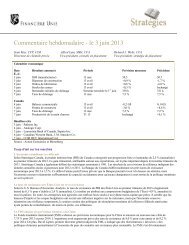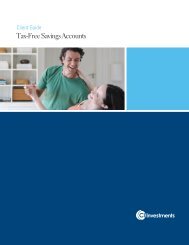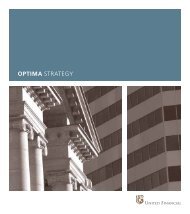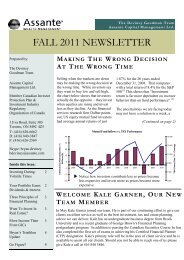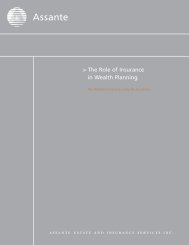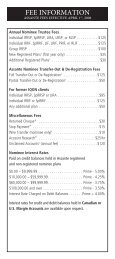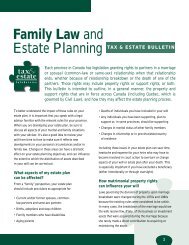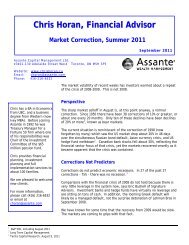Probate planning - Assante Wealth Management
Probate planning - Assante Wealth Management
Probate planning - Assante Wealth Management
Create successful ePaper yourself
Turn your PDF publications into a flip-book with our unique Google optimized e-Paper software.
GIFTING<br />
You may reduce the value of your probatable estate<br />
by making gifts while you are alive. There is no gift<br />
tax payable in Canada although there may be income<br />
tax consequences.<br />
The tax rules state that if you dispose of any property<br />
(by selling it or giving it away) and there are no<br />
proceeds, or the proceeds are less than the fair market<br />
value of the property, you will be deemed to have<br />
received an amount equal to the fair market value of<br />
the disposed property. This means that if you give<br />
away assets, you may have to report a capital gain on<br />
the property. If you are considering gifting property,<br />
talk to your advisor to make sure you understand the<br />
legal and tax implications of this strategy.<br />
Revocable living trusts<br />
(“alter ego” and “joint partner”)<br />
Generally, when assets are transferred to a trust for<br />
estate <strong>planning</strong> purposes, the change in ownership<br />
triggers a taxable deemed disposition. This means that<br />
for tax purposes the assets are treated as if they were<br />
sold by you and then purchased at fair market value<br />
by the trust. As a result, any deemed gain realized<br />
from the transfer becomes taxable to you.<br />
There are many reasons why you might want to<br />
transfer assets to a trust. For example, you may be<br />
able to save on probate taxes on these particular assets<br />
by changing the registered ownership from your own<br />
name. In doing so, the assets are no longer considered<br />
to be part of your estate at the time probate tax is<br />
calculated. Using a formal trust lets you benefit from<br />
the income during your lifetime, but have the assets<br />
distributed to other beneficiaries after your death.<br />
Another benefit of using a trust is that it offers a level of<br />
confidentiality that you cannot achieve through a will.<br />
By law, a will becomes a public document once it is<br />
probated. Regardless of your motivation for setting up<br />
a trust, you should be aware that the transfer of assets to<br />
the trust may trigger an immediate income tax liability<br />
to you if there are significant unrealized gains.<br />
Your assets<br />
Income tax on deemed disposition<br />
of property can be delayed until<br />
your death when the assets are<br />
paid out of the trust to your<br />
beneficiaries. No probate tax<br />
is payable on those assets.<br />
Trust<br />
Your<br />
beneficiaries<br />
6



